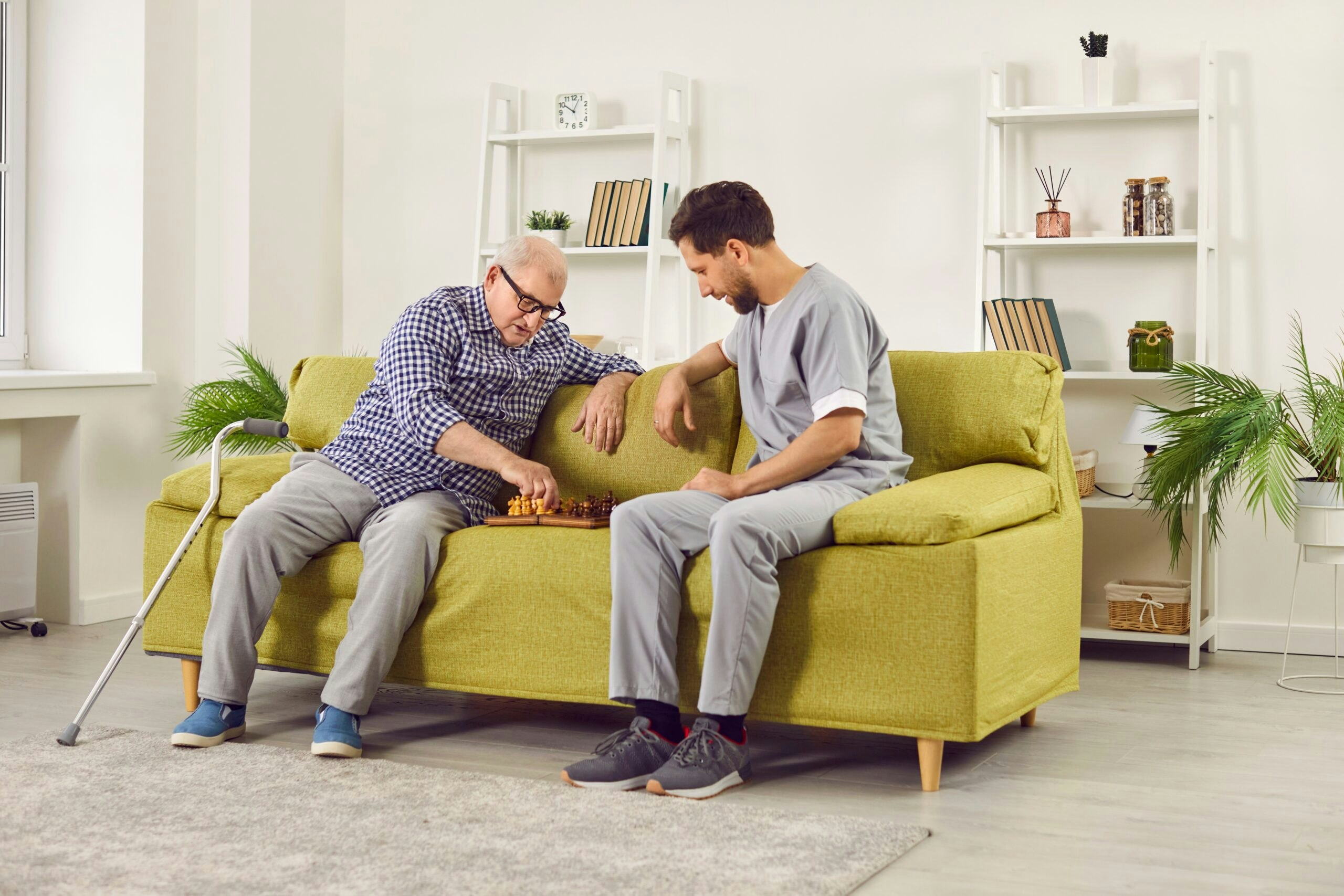
How Volunteers Can Help Caregivers
The needs and stress of the caregiver can sometimes be overlooked when the primary concern is for the patient. It is easy for them to feel isolated and exhausted when caring for someone with a serious illness. That is when a trained hospice volunteer can help. They provide companionship for the patient and can help caretakers by giving them time to rest and recharge.
Hospice volunteers offer kind and soothing support for the caregiver and provide respite, allowing family members time to unwind or focus on tasks they alone can handle. For the patient, volunteers offer companionship and a way to make a connection when outside ties are limited. Often, volunteers report that patients share thoughts and worries they do not want to trouble family members with.
Hospice volunteers can offer everything from a friendly ear to errand help. They spend time with patients reading aloud, listening to music, or playing chess. Other times, volunteers might take patients on a walk or run errands that are helpful to the household, like grocery shopping. While activities vary, the goal is always to offer warmth and companionship while easing caregivers’ work.
Volunteers can not administer medication, offer medical advice or resolve issues among family members.
Finding the Right Fit
Finding the right fit is always essential. Families who feel they could benefit from a volunteer should start by approaching their social worker or RN Case Manager. They will contact the Volunteer Coordinator to identify a volunteer who best matches the family’s needs. The RN Case Manager, Social Worker, Volunteer Coordinator, and Volunteers are members of the patient’s interdisciplinary hospice care team.
Volunteers are typically matched with patients seeking specific skills or interests. For example, if a caregiver is looking for a veteran volunteer who likes to talk about current events, the call will go out to volunteers who fit the bill. If a patient loves jazz music and wants someone to listen to it with them or needs someone who speaks a particular language, every effort will be made to find a matching volunteer to fit that need.
Visits typically occur in the patient’s home, which most patients prefer but sometimes in a nursing facility. Volunteers often strive to make the experience as personal as possible. Whatever the activity, it’s guided by the patient’s needs, the volunteer’s capabilities, and what is helpful for caregivers.
Training to be a Hospice Volunteer
Hospice volunteers are extensively screened and trained. They undergo the same regulatory hospice and agency training as other hospice employees, along with health, background, criminal and reference checks. They must be at least 18 years old if they want direct patient care.
In training, volunteers learn how to work with patients who are in both home and nursing facility settings. They also know from case studies that illustrate potential challenges that might arise, along with common dos and don’ts. Many elderly patients in hospice care have some form of dementia. Volunteers are trained to provide a calm, soothing presence.
Providing hospice care is a team effort. And volunteers, along with their Volunteer Coordinators, are an integral part of this effort. Volunteers might visit a patient one-on-one, but the work is connected to the doctors, nurses, social workers, and clergy, who help guide the patient’s care together.
Why do Volunteers Choose Hospice Care?
It is common for many volunteers to have personally experienced the support hospice care brings to a loved one, and volunteering is their way of giving back. Others are training for the medical field and welcome the experience of working directly with patients. Time and again, volunteers say they get as much out of volunteering as patients do; they are rewarded by making someone feel better during their final journey. One of the most rewarding experiences volunteers report is knowing that even if little or no conversation occurs, the interaction leaves them knowing they brought comfort to someone’s day by being present with them.
At MJHS, we value both personal and professional caregivers and recognize the critical work you do. That is why we have created these online caregiving resources to help you through this crucial time in your life.
If you need additional help and support caring for your loved one, please feel free to contact MJHS. We can recommend other care options available to you through one of our programs.